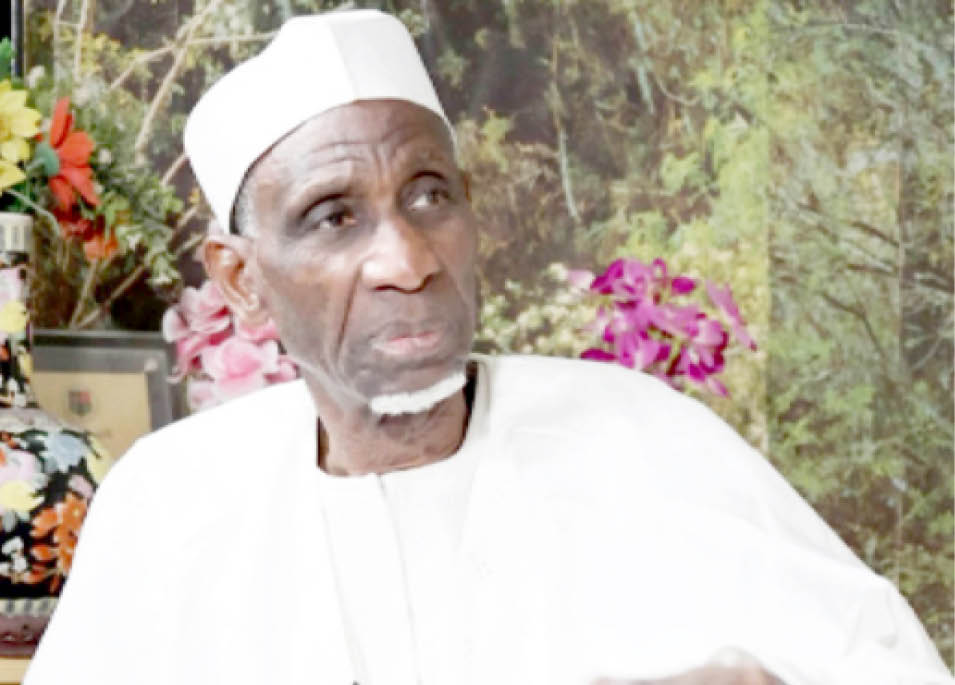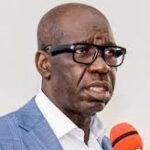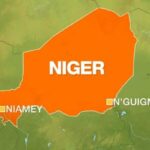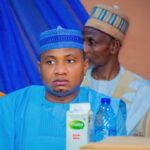Alhaji Suleiman Baffa is a well-known banker and administrator. He was managing director of two old-generation banks—the United Bank for Africa (UBA) and Union Bank. He was also a managing director of the Nigerian Printing and Minting Company, which prints the naira notes. In this last known interview with Daily Trust on Sunday before his death on Tuesday, October 3, 2023, the former permanent secretary, who retired from active service in 1999, spoke on his experiences and services to the country, as well as other issues.
You were born in Auyo in the present-day Jigawa State, how would you describe the olden days?
I was born in Auyo but I can’t remember the day or even the month. I am now over 80 years. I do not count my age, but I followed the official one; whether it is correct or not is something different.
I attended junior primary school in Auyo and senior primary in Hadejia. I had my secondary school in the Kano Middle School, which is now called Rumfa College and started working at 18. But then, an opportunity came when I was told that there was a new training college for grade two teachers in Gombe, so I jumped at it and went there. I spent four years there and graduated as a grade two teacher. That was about the time northern Nigeria started having teachers’ certificate, which was equivalent to that of secondary school. It was a six-year training programme.
I started teaching in Hadejia, which was a new school also. Then an opportunity arose when there was an election at Hadejia and students were posted to conduct it. That was how I developed myself as a gentleman at the age of 18.
FG targets 40m jobs in 2 years from methanol technology
Anambra has recruited, retrained over 300 touts For Revenue Collection
So you switched from teaching to administration?
Well, nobody wants to die a teacher. But there were very few schools in northern Nigeria, especially from middle to secondary school, to teacher training.
First, we were pioneers in the teacher training college I attended in Gombe, and with European teachers. From the whole of northern Nigeria I was the only one from Kano Province.
Election came in two constituencies in Hadejia—north and south—and I happened to be an assistant, what they called electoral officer for Hadejia South.
And the person, a European, Johnson, who took Hadejia north, somehow loaded me with a very important position to ensure that we were doing the right thing, and so forth; and we should organise ourselves.
To cut the story short, at the end of the day, in Kano Province, Hadejia north and south became the third in the announcement of the results.
Was it a House of Assembly election?
House of Representatives.
Was the election the opening for you to become an administrative officer, where you went to Kongo, Zaria?
Yes, I went to Kongo with others who were selected from all parts of the North to have that kind of training, which was more about management, and of course, responsibility to handle everything well.
When you finished from Kongo you became an assistant district officer, moving around the North; tell us about life as a young administrative officer?
Well, as a district officer you were never posted to your own province, you had to be posted somewhere else, maybe to Sokoto or Zaria.
Did you go to Jos?
Yes.
Did you enjoy it as a young officer?
I was familiar with the territory, I had friends.
As a young administrative officer, how was your relationship with the Sardauna?
Very close, especially when he came to Plateau. I was in charge of the government guest house where he stayed at the local authority in Jos town. It was my responsibility to make sure that things went well.
What was he visiting Jos for?
Many things. I think that in the North he didn’t see any location that was more suitable for him. It was quite cool and clean. He also came on the invitation of those companies doing one thing or another there. Secondly, he wanted to make sure that from time to time he was in Jos to rest.
You also moved from the northern regional service to Kano when 12 states were created. You eventually became a permanent secretary in Kano at a fairly young age; how challenging was that responsibility?
I was about 30, so as a very young man it became part of my nature to do something to reach the high point—how to manage, how to grow up. I had to do something. So when states were created, I wanted to get to that point, of course. Naturally, Kano Province became Kano State and I was posted to that place.
Governor Audu Bako liked me very much. I was a young person, so I was hated by other people. I survived it, anyway. But I thought I had to find a way out of the civil service.
Was that what made you leave fairly early? Did you resign or retire?
I retired.
And you moved into banking, starting from the Kano area office; what kind of job were you offered?
I was offered the job of an area manager, North, but I had to go and study for one and a half years abroad.
In the UBA, right?
Yes. And when I came back, same things kept on coming and I got elevated.
Was that in Lagos?
Yes. Then I became the managing director. I managed four companies in Lagos, including UBA, Union Bank and Mint.
What was your experience as a managing director?
The bank was liberal and did everything to retain a staff with the skills needed in banking.
You moved from the UBA straight to manage the Union Bank, which one did you find more challenging?
The UBA was really more liberal; the Union Bank was an old bank, so the challenges were really there. When I went there as a managing director, somebody challenged me on my first day of meeting members of staff. But I did the worst I could do. I said I was not there to obey orders from anybody. I also said I would remain the managing director until my tenure elapsed.
Did he feel you shouldn’t be there as managing director?
I was too young at that time and he thought that as a northerner I didn’t know anything about the job, and therefore, couldn’t handle it.
What impact did you make in the banking sector? Are there things you recall with pride?
Well, I don’t know whether I did anything new professionally, but I think I had some influence on things in both the UBA and Union Bank.
Some people wanted to do things in a different way and so forth, and that really slowed development and that kind of thing.
The following day, that person I told you challenged me on the first day resigned.
After your tenure in the Union Bank there was a gap in time before you went to the printing and minting company to manage it; how was that appointment made?
The culture of government at that time was that when new people came they would make changes.
Was that during the Abacha or Shonekan government?
I and Abacha knew each other for a long time. He was reminding me every time that he was my pupil, not as a teacher, but he was about three or four years below me in school. So he gave me all the respect and backing I could get.
We hear all sorts of stories about money being printed and some of it destroyed if there were misprinted. It must be a very tempting job, how was your experience running the company that prints our money because all the money was at your disposal and you decided where it would go, isn’t it?
That is a wrong thinking.
You spent six years as the managing director of the printing and minting company, did you believe it was important to continue printing new notes?
Christmas came and everybody wanted new notes, so there was chaos.
Didn’t you think that printing new notes would sort of fuel inflation, or were you withdrawing old notes when you printed?
All the notes were going to the Central Bank of Nigeria (CBN), which would determine how many would come back. And the Nigerian note doesn’t last a year, and you don’t use a replacement. Inflation happens in the market, not in the hard currency.
After Abacha left, it was alleged that he was moving money, whether from the CBN or wherever and putting in private hands. Are you surprised by such stories?
I wouldn’t know because I was not an employer of the CBN. In any case, the minting company was reporting to the CBN. One kobo produced by the company didn’t go anywhere because we had officers in what they called a strong room to ensure that we handed over the currency to the authorised staff of the CBN once it got out of our hand.
So you didn’t know how Abacha related with the CBN?
The CBN came to take it. We did not release it to anybody, not even a kobo.
You retired to engage in your passion, which is farming, especially growing date trees. Can you tell us how that has worked out?
It was virtually a kind of natural reaction for me. In Auyo, where I was born, virtually every house had a date palm. I grew to love that and the resilience of the date palm tree. It can last for so many years and still be in production.
The government gives monetary interventions to farmers through the CBN to grow all sorts of things; do you think it is the right way to go?
It is political.
As somebody experienced in farming, what is always your reaction when you hear things like the recent rice pyramid in Abuja? Are we back to the days of stacking groundnuts or rice?
Of course it is helping to reduce the importation of rice, in the sense that our production is high enough. I will certainly support it, but I don’t think we are doing that.
So you think that despite the rice effort, we are not there yet?
From what you have told me, I think we have a long way to go. We still import a lot. The issue is: How do we produce enough and make it truly commercial?
You saw the colonial era, independence, all sorts of periods in Nigeria; are you worried about what is happening to us now? Do you have an explanation for that?
It is everybody to himself; that’s what seems to be happening now. I cannot explain why and how, but the kind of relationship we have had with other people, rather than even siblings and so forth, is not working.
(This was first published on Sunday, April 3, 2022)

 Join Daily Trust WhatsApp Community For Quick Access To News and Happenings Around You.
Join Daily Trust WhatsApp Community For Quick Access To News and Happenings Around You.


